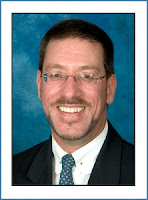 Jane Garvey, the North American Chair of Meridiam Infrastructure, knows a
thing or two about public/private partnerships (“P3”). Meridiam is one of the
country’s leaders in P3 projects, from compiling the P3 team and fertilizing it
with ideas and experience to investing in the enterprise as a shareholder or
lender. Jane is their top person in North America and shared her thoughts with
me about Florida’s potential for P3 development. In this blog post and some that
will follow, I will share her thoughts with you.
Jane Garvey, the North American Chair of Meridiam Infrastructure, knows a
thing or two about public/private partnerships (“P3”). Meridiam is one of the
country’s leaders in P3 projects, from compiling the P3 team and fertilizing it
with ideas and experience to investing in the enterprise as a shareholder or
lender. Jane is their top person in North America and shared her thoughts with
me about Florida’s potential for P3 development. In this blog post and some that
will follow, I will share her thoughts with you.
P3s are not ideal for every job. They’re more
appropriate for large, complex, innovative projects not neatly fitting into
traditional capital programs. The project must be critical to the public owner,
as criticality will ensure the facility will be operated for the long-term, thus
generating the necessary operational revenue to repay private investors and
contractors for their risks. Criticality also ensures strong public sector
buy-in, as lack of public commitment to the job may dilute the prospects of
success. Historically, critical projects have included transportation as well as
social infrastructure, such as schools, courthouses, and teaching hospitals.
The proposed P3 project must have a good revenue
stream or it won’t attract investors or lenders. Stable revenue tied to the job,
such as shares of federal funds, sales taxes or impact fees, will lure
investors. Riskier prospects may deter investors. Without private funding, the
P3 delivery method will fail, so it is important for funding to be attracted
through assurances of stable revenue sources from which investors may earn an
appropriate return on their investment.
Jane echoes the sentiment of everyone who has
been through a successful P3 project that one of the most critical components is
someone to champion the project or at least champion the notion of an
alternative delivery method. Someone from the business community or a public
official must advance the cause through the political channels and in the arena
of public perception to avoid the project’s defeat at the hands of questionable,
controversial or adverse concerns about the project’s viability, feasibility or
appropriateness.
Finally, a successful P3 project must be a good
fit with the public. The affected public entity must have institutional
capability, meaning its various departments and operational structure must be
able to seamlessly implement and monitor the job without disruption, delays or
excessive red tape. Because disruptions are common when a public agency
unfamiliar with P3 exercises its new set of P3 skills, delays can be reduced if
the public agency’s decision-makers are well structured and the agency hires a
financial advisor and outside legal counsel possessing the required P3 skill
set.
Keep an eye on this blog for future posts,
including more from my interviews with Jane Garvey, as well as other P3 experts,
as we continue picking their brains for nuggets of wisdom we can all use to
begin or continue to implement the P3 delivery system in Florida.
